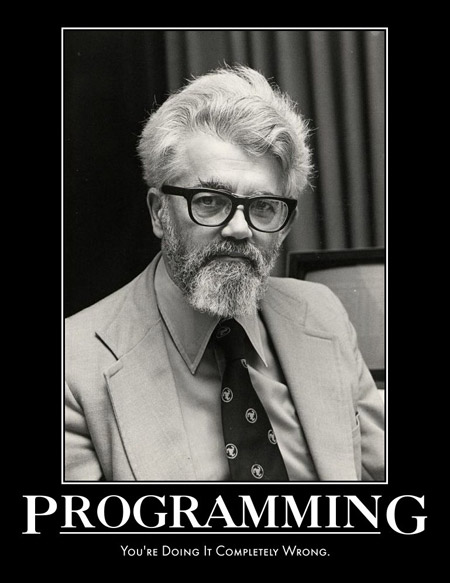- Download mpl.exe and some example logic files.
- Download the source code.
Monday, October 31, 2011
Monadic Predicate Logic with Some Modal Operators
I have a new version of the monadic predicate logic program that I posted a while ago. It has operators for possibility and necessity (<> and [], respectively). They bind to sub-expressions the same way negation (~) does; they bind to the nearest existential or universal quantifier to the right, or, failing that, the nearest predication to the right, so <>Px&Py is equivalent to (<>Px)&(Py) but not <>(Px&Py). <>x,Px&Py is equivalent to <>(x,Px&Py) but not (<>x,Px)&Py. I'm posting it and its source code, now that I have written a parser that I'm not ashamed of. The one downside is that it no longer supports the "old school" dot grouping. If any one wants to use it, tell me and I'll add it back in. If anyone uses this program at all, tell me!
Labels:
UPL
Wednesday, October 26, 2011
Setting Local Variables in Visual Studio
Have you ever wanted to change the value of a local variable inside of a method? Without changing its code or pausing it in the debugger, that is? Maybe not, but I did, while writing a unit test this week. I figured out how to do it in Visual Studio, using Visual Studio's DTE object. The DTE object provides a programmatic interface to Visual Studio's debugger. With it, breakpoints can be set and deleted programmatically. But what about changing the variable? Breakpoints can have conditions, so...
using EnvDTE;
using System.Runtime.InteropServices;
...
// Get the DTE object.
DTE lDTE =
Marshal.GetActiveObject( "VisualStudio.DTE" ) as DTE;
// Set a conditional breakpoint. In this example, the
// break is in file.cs, line 422.
lDTE.Debugger.Breakpoints.Add(
null,
"file.cs",
422,
1,
// Use the break condition to set the local variable
// you want changed. Note that the expression always
// returns false; the debugger will assign 1 to
// lVariable every time the condition is evaluated,
// but never pause the unit test.
"(lVariable = 1.0f).ToString() == null",
dbgBreakpointConditionType
.dbgBreakpointConditionTypeWhenTrue,
null,
null,
0,
null,
0,
dbgHitCountType.dbgHitCountTypeNone );
// Call that method...
...
// Delete the breakpoint if you don't want it
// to affect later code.
lDTE.Debugger.Breakpoints.Item( 1 ).Delete();
Labels:
software
Tuesday, October 25, 2011
John McCarthy
John McCarthy died yesterday. It's funny, I looked at his website yesterday and later thought about how old he must be, not knowing he had passed. He invented the LISP programming language back in the late 1950s. Even though I don't program in LISP - I wrote a Scheme plugin for GIMP a few years ago; that's about all - I admire it a lot. Thinking about how simple its syntax is and how simple its runtime is, yet how powerful it is just makes me feel good inside. It's like a work of art.
So, those of you who are programmers: to commemorate, read McCarthy's original specification for LISP, which is an excellent read for any computer scientist. And then write a program in the functional style.
So, those of you who are programmers: to commemorate, read McCarthy's original specification for LISP, which is an excellent read for any computer scientist. And then write a program in the functional style.
John McCarthy, 1927-2011
Labels:
software
Subscribe to:
Posts (Atom)



